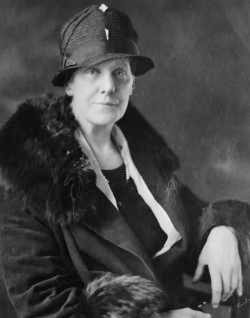
Today is the 101st anniversary of Mother’s Day as we know it [May 10, 2009]. Over at Beliefnet, popular religion scholar Diana Butler Bass reminds us of the progressive origins of Mother’s Day, which started with a Virginia native Anna Jarvis, daughter of a Southern social activist:

Anna Jarvis intended the new holiday to honor all mothers beginning with her own — Anna Reeves Jarvis, who had died in 1905. Although now largely forgotten, Anna Reeves Jarvis was a social activist and community organizer. In 1858, Anna Reeves Jarvis organized poor women in West Virginia into ‘Mothers’ Work Day Clubs’ to raise the issue of clean water and sanitation in relation to the lives of women and children. She also worked for universal access to medicine for the poor. Reeves Jarvis was a pacifist who served both sides in the Civil War by working for camp sanitation and medical care for soldiers of the North and the South. In short, Mother’s Day was founded to celebrate a radical community organizer who favored universal health care and was a pacifist.
The younger Jarvis’ efforts eventually led President Woodrow Wilson to proclaim the holiday in 1914.
However, Jarvis soured on the holiday as it became more commercialized. She also fought against others who tried to appropriate Mother’s Day — for example, in 1932 she broke up a rally of the American War Mothers and was dragged away by police and briefly put in jail.
Upset that the mission of Mother’s Day had been subverted, Jarvis eventually led a campaign to do away with holiday altogether. But Mother’s Day took on a life of its own and is celebrated across the country today — although likely not in the way Jarvis intended










